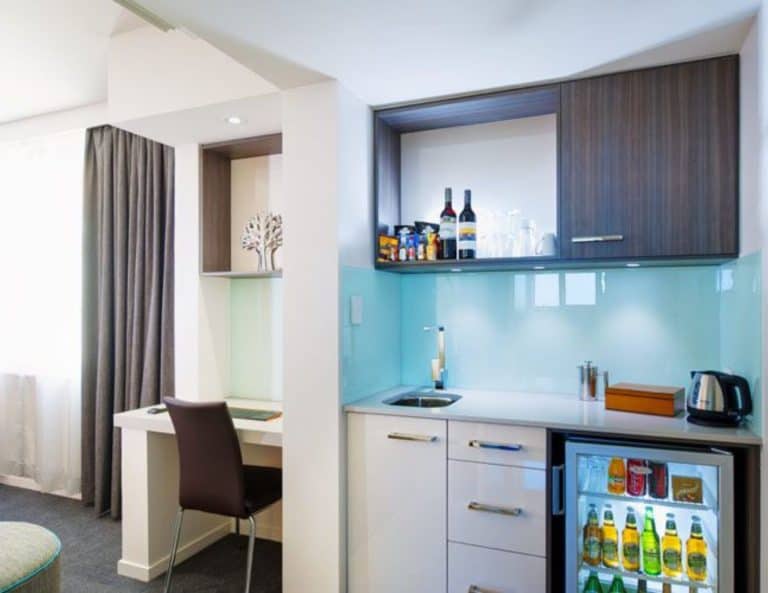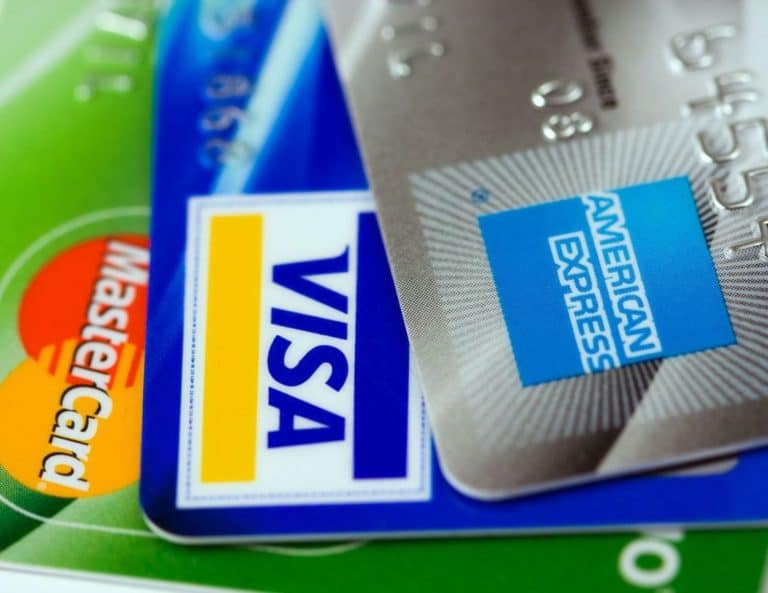Discover the consequences of leaving a hotel without settling your bill
If you’re short on time, here’s a quick answer to your question: Leaving a hotel without paying can lead to legal issues and financial consequences
In this article, we will explore the potential repercussions of not paying your hotel bill, including legal actions, damages to your credit score, and possible criminal charges.
We will also discuss ways to handle unforeseen circumstances and offer tips on resolving any disputes with the hotel.
Read on to understand the importance of settling your hotel bill and how to avoid complications when checking out.
Understanding the Importance of Paying Your Hotel Bill
When staying at a hotel, it is crucial to understand the importance of paying your bill before checking out. Not only is it a legal and ethical obligation, but it also ensures a smooth and enjoyable experience for both guests and hotel staff. Failing to pay your hotel bill can have consequences that range from financial penalties to potential legal issues.
Hotel policies and contractual obligations
Hotels have clear policies in place regarding payment for their services. When you check-in to a hotel, you are entering into a contractual agreement with the establishment. By staying at the hotel, you agree to abide by their policies, which typically include settling your bill upon departure. These policies are in place to maintain the financial stability and operations of the hotel.
If you leave a hotel without paying, you are essentially breaking this agreement. In response, the hotel has the right to take legal action to recover the unpaid amount. This can result in financial penalties, damage to your credit score, and potential legal consequences. It is important to remember that hotels have legal recourse to protect their interests.
Maintaining a good relationship with hotels and staff
Paying your hotel bill is not just about fulfilling a financial obligation; it is also about maintaining a good relationship with the hotel and its staff. Hotels rely on guest satisfaction and positive reviews to attract future customers. By paying your bill promptly, you contribute to the smooth operation of the hotel and support the livelihoods of the staff who work tirelessly to ensure your comfort.
Additionally, paying your hotel bill in a timely manner helps foster a positive atmosphere and enhances your own reputation as a responsible guest. It is always better to leave a hotel on good terms, as you never know when you may need to return or require a recommendation from the hotel staff.
Remember, paying your hotel bill is not only a legal and ethical obligation, but it also contributes to a positive experience for both you and the hotel. By adhering to hotel policies and maintaining good relationships, you can enjoy your stay and ensure a smooth check-out process.
Legal Consequences of Leaving a Hotel Without Payment
Forgetting to pay your hotel bill or intentionally leaving without settling your dues can have serious legal consequences. Hotels have the right to pursue legal action to recover the unpaid amount, and you may be subject to civil lawsuits, monetary damages, and even criminal charges, depending on the circumstances.
Civil lawsuits and monetary damages
If you leave a hotel without paying, the hotel management may choose to file a civil lawsuit against you to recover the outstanding amount. In such cases, they can seek monetary damages, which could include the cost of the stay, any additional expenses incurred due to your actions, and legal fees. The hotel may also claim compensation for any inconvenience caused, such as lost revenue from potential bookings.
It’s important to note that hotels have the right to take legal action even if you accidentally forgot to pay. In such cases, they may reach out to you to settle the outstanding balance, but if you fail to respond or refuse to pay, they can escalate the matter legally.
Impacts on your credit score
Leaving a hotel without paying can have a negative impact on your credit score. If the hotel decides to report the unpaid amount to credit bureaus, it could result in a derogatory mark on your credit report. This can make it harder for you to secure loans, credit cards, or favorable interest rates in the future. It’s essential to address any outstanding bills promptly to avoid these consequences.
Possible criminal charges
In certain cases, leaving a hotel without settling your bill may be considered a criminal offense. This typically occurs when there is evidence of intent to defraud or when the unpaid amount reaches a significant threshold. If the hotel management believes that you deliberately avoided payment, they can involve law enforcement, potentially leading to criminal charges.
It’s crucial to remember that intentionally leaving a hotel without paying is not only morally wrong but also has severe legal implications. Always ensure you settle your bills before checking out to avoid any unnecessary complications. If you encounter any financial difficulties, it’s best to communicate with the hotel management and try to work out a solution that suits both parties.
Handling Unforeseen Circumstances
For various reasons, there may be situations where you find yourself unable to pay for your hotel stay. It could be due to financial difficulties, loss of wallet, or other unforeseen circumstances. While leaving a hotel without paying is not an ideal situation, there are ways to handle such circumstances responsibly and minimize any negative consequences that may arise.
Communication with the hotel management
The first step in handling unforeseen circumstances regarding payment is to communicate with the hotel management. It is essential to inform them about your situation as soon as possible. Most hotels have a front desk or guest services department that can assist you in resolving the issue.
Approach the hotel staff calmly and explain your situation honestly. They may be willing to work with you and find a solution that benefits both parties. Remember, being polite and respectful can go a long way in resolving any issues that may arise.
If you have a valid reason for not being able to pay, such as a lost wallet or an unexpected financial setback, the hotel management may be more understanding and accommodating. They might provide you with options to settle the payment or suggest alternative arrangements.
Negotiating alternative payment arrangements
If you find yourself unable to pay the hotel bill immediately, negotiating alternative payment arrangements is a possible solution. This could involve setting up a payment plan or providing collateral until you can fulfill your financial obligations.
Discussing your situation openly with the hotel management allows them to understand your circumstances better. They may be willing to work out a compromise that suits both parties. This could involve a deferred payment plan, where you agree to pay the outstanding amount in installments over a specified period of time.
It is important to note that each hotel has its own policies and procedures regarding payment issues. Some hotels may be more lenient than others, while some may strictly enforce their payment policies. Therefore, it is crucial to have open and honest communication to find a mutually beneficial solution.
If you are unsure about how to proceed or need further assistance, it is recommended to seek legal advice or contact relevant consumer protection agencies in your country. They can provide guidance and support in resolving any disputes that may arise from leaving a hotel without paying.
Remember, it is always best to address unforeseen circumstances regarding payment promptly and responsibly. By communicating with the hotel management and negotiating alternative payment arrangements, you can navigate these situations with integrity and minimize any negative consequences.
Resolving Disputes with the Hotel
Leaving a hotel without paying can lead to various disputes and legal consequences. However, it is always best to try and resolve any issues with the hotel directly before the situation escalates. Here are some steps you can take to resolve disputes with the hotel:
Documentation and evidence
When dealing with a dispute, it is crucial to gather as much documentation and evidence as possible. This includes receipts, invoices, and any communication you have had with the hotel staff. Take pictures of any damages or issues you encountered during your stay. This evidence will strengthen your case and provide support for your claims.
Additionally, make sure to keep a record of the names and positions of the hotel staff you interacted with. This will help in case you need to escalate the issue to higher authorities.
Escalating the issue to higher authorities
If you have tried to resolve the dispute directly with the hotel but have not reached a satisfactory resolution, you may need to escalate the issue to higher authorities. This could include speaking to the hotel manager or contacting the hotel’s corporate office.
When escalating the issue, be clear and concise in explaining your concerns and providing the evidence you have gathered. Clearly state what you expect as a resolution and give the hotel a reasonable timeframe to respond.
If the hotel does not respond or refuses to cooperate, you may consider filing a complaint with local consumer protection agencies or seeking legal advice. These organizations can provide guidance on how to proceed and may be able to help resolve the dispute.
Remember, it is always best to try and resolve disputes amicably before taking any further action. Communication and documentation are key to reaching a satisfactory resolution.
Tips to Avoid Complications During Check-out
Double-checking your bill
One of the most important steps to take before leaving a hotel is to thoroughly review your bill. Mistakes can occasionally happen, and it’s crucial to identify any discrepancies before you settle your payment. Take the time to go through each item on your bill and ensure that you have been charged correctly. This includes room rates, additional services, and any taxes or fees. If you notice any errors, don’t hesitate to bring them to the attention of the hotel staff. They will usually be more than willing to correct any mistakes and provide you with an accurate bill.
Settling any outstanding charges
Prior to checking out, it’s essential to settle any outstanding charges you may have incurred during your stay. This includes any extra services you may have utilized, such as room service or spa treatments. If you have consumed items from the mini-bar, make sure to pay for them as well. By taking care of these charges before leaving, you can avoid any potential complications and ensure a smooth check-out process. If you’re unsure about any additional charges, don’t hesitate to ask the front desk for clarification.
Providing feedback and reviews
After settling your bill and ensuring everything is in order, providing feedback and reviews can be a valuable way to contribute to the hotel’s improvement. Many hotels appreciate guest feedback, as it helps them identify areas for improvement and maintain high standards of service. Consider leaving a review on popular travel websites such as TripAdvisor or Yelp, or directly on the hotel’s website. Your feedback can be helpful to both the hotel staff and future guests. Remember to be constructive and provide specific details about your experience to make your review more impactful.
Conclusion
Paying your hotel bill is not just a matter of ethics and integrity; it has legal implications as well.
Leaving a hotel without clearing your dues can result in lawsuits, damage to your credit score, and potential criminal charges.
To avoid such complications, it’s important to understand hotel policies, maintain good communication, and address any unforeseen circumstances promptly.
If you encounter disputes, proper documentation and escalation to higher authorities can help resolve the issues.
By following these guidelines and settling your bill responsibly, you can ensure a smooth check-out process and maintain a positive relationship with hotels.






